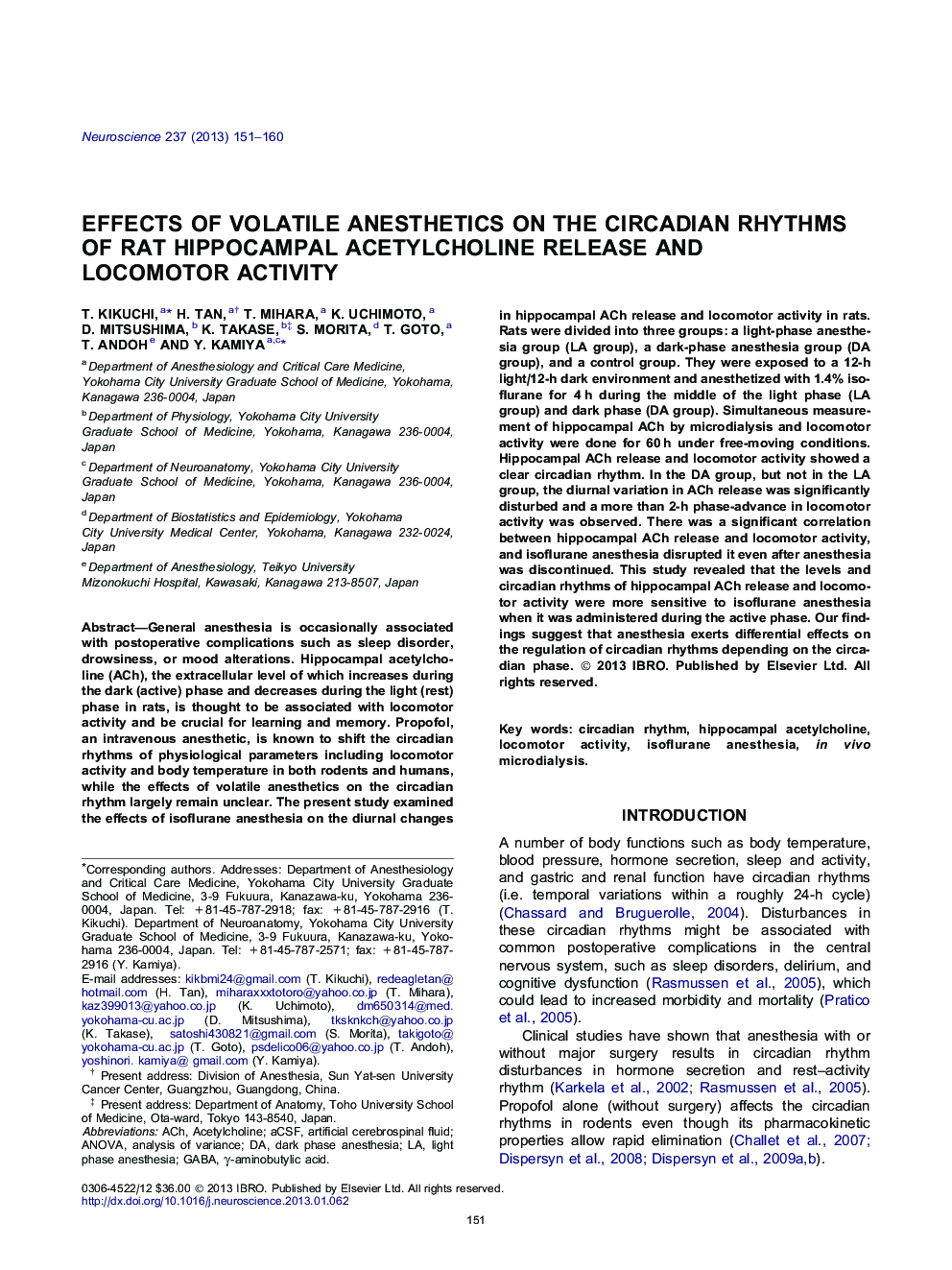| کد مقاله | کد نشریه | سال انتشار | مقاله انگلیسی | نسخه تمام متن |
|---|---|---|---|---|
| 6275203 | 1614839 | 2013 | 10 صفحه PDF | دانلود رایگان |
General anesthesia is occasionally associated with postoperative complications such as sleep disorder, drowsiness, or mood alterations. Hippocampal acetylcholine (ACh), the extracellular level of which increases during the dark (active) phase and decreases during the light (rest) phase in rats, is thought to be associated with locomotor activity and be crucial for learning and memory. Propofol, an intravenous anesthetic, is known to shift the circadian rhythms of physiological parameters including locomotor activity and body temperature in both rodents and humans, while the effects of volatile anesthetics on the circadian rhythm largely remain unclear. The present study examined the effects of isoflurane anesthesia on the diurnal changes in hippocampal ACh release and locomotor activity in rats. Rats were divided into three groups: a light-phase anesthesia group (LA group), a dark-phase anesthesia group (DA group), and a control group. They were exposed to a 12-h light/12-h dark environment and anesthetized with 1.4% isoflurane for 4Â h during the middle of the light phase (LA group) and dark phase (DA group). Simultaneous measurement of hippocampal ACh by microdialysis and locomotor activity were done for 60Â h under free-moving conditions. Hippocampal ACh release and locomotor activity showed a clear circadian rhythm. In the DA group, but not in the LA group, the diurnal variation in ACh release was significantly disturbed and a more than 2-h phase-advance in locomotor activity was observed. There was a significant correlation between hippocampal ACh release and locomotor activity, and isoflurane anesthesia disrupted it even after anesthesia was discontinued. This study revealed that the levels and circadian rhythms of hippocampal ACh release and locomotor activity were more sensitive to isoflurane anesthesia when it was administered during the active phase. Our findings suggest that anesthesia exerts differential effects on the regulation of circadian rhythms depending on the circadian phase.
⺠Hippocampal ACh release and locomotor activity were measured for 60 h. ⺠ACh release and locomotor activity showed clear diurnal rhythms. ⺠Isoflurane anesthesia during active phase disturbed those diurnal changes for 24 h. ⺠Isoflurane anesthesia during rest phase induced minor influences on those circadian rhythms. ⺠Isoflurane anesthesia disrupted correlation between ACh release and locomotor activity.
Journal: Neuroscience - Volume 237, 1 May 2013, Pages 151-160
